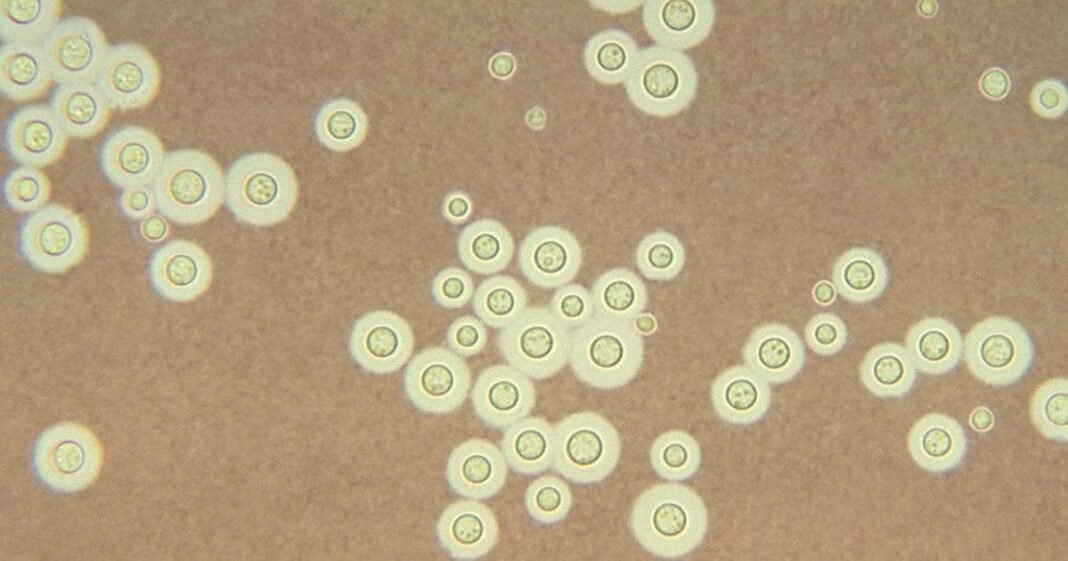The first report to link an infection of a patient with a pathogen found in medical marijuana has just been released.
Medical cannabis is used by many patients to treat symptoms and reduce side effects from other treatment. But it’s often been warned that contaminants in cannabis such as fungus can present a risk to patients; particularly those with compromised immune systems — although there’s been little proof of this actually happening.
University of Pittsburgh scientists may have demonstrated this infection for the first time.
The researchers recorded the details of a case of a 46-year-old Pennsylvania woman with relapsing multiple myeloma following a stem cell transplant, who was treated with daratumumab (immunotherapy), pomalidomide (chemotherapy) and dexamethasone (steroid).
When presenting after several months of dysphonia (voice hoarseness), worsening sore throat and new-onset headache, she was diagnosed with Cryptococcus neoformans epiglottitis/laryngitis and meningitis. Cryptococcus is a fungal invasive infection transmitted via inhalation.
Following various treatment, she developed septic shock due to a bacterial infection called urosepsis. Then hospital-acquired pneumonitis followed. Later, she developed arrhythmia before dying from cardiac arrest. The autopsy revealed persistent cryptococcosis in the epiglottis and lungs, with bronchopneumonia superimposed.
Although cryptococcal pharyngitis, which is caused by inhaled corticosteroids is rare and a known risk factor, this patient refused to use inhaled steroid. (Dexmethasone usually comes in the form of a tablet). The patient admitted to using medical marijuana, which included loose dried cannabis flower, vape carts (distillate), and wax, all of which were legally purchased in the state at authorised dispensaries.
C. Neoformans, however, was never cultured. Cryptopcoccus neoformans from one flower product was found after modifying the culturing method. They were able identify the fungus strain in the patient’s product and confirmed that the cause of infection was cannabis flower.
Researchers concluded that:
The need for more rigorous studies on cannabis and for greater regulation is evident with the growing use of medical cannabis and non-opioid painkillers.
Journal has published the report Clinical Infectious Diseases.
In a similar vein, according to a survey conducted recently in the USA, most cannabis users want their marijuana decontaminated.




